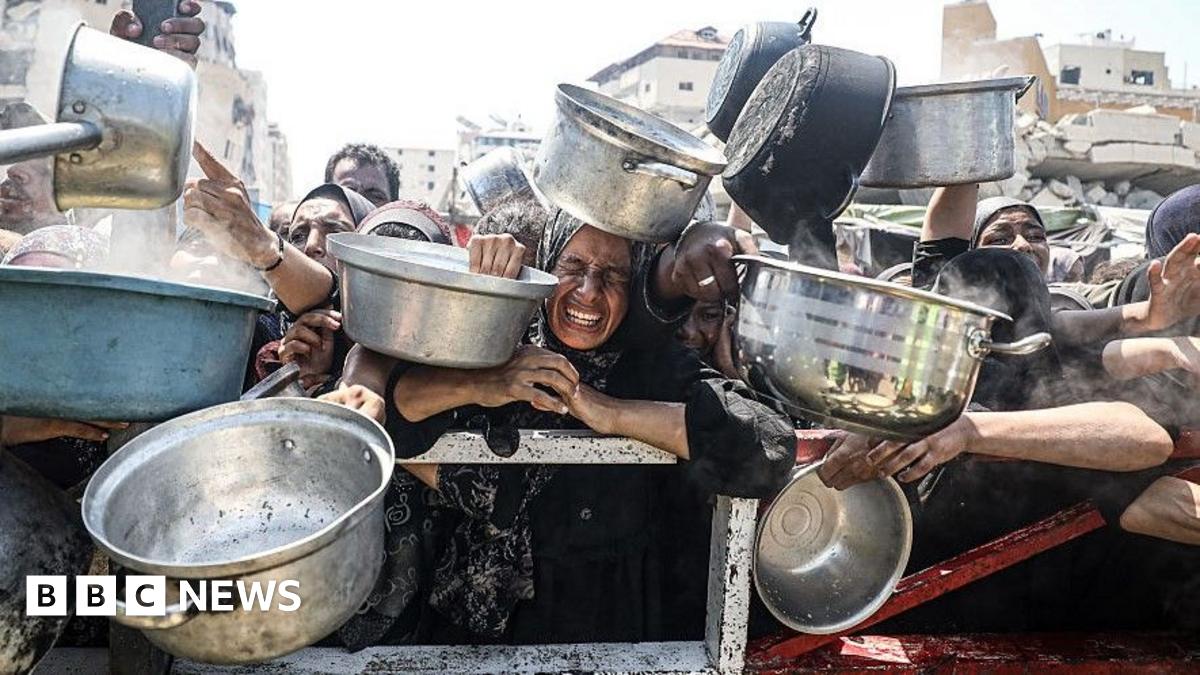Malnutrition Deaths Rise in Gaza as Israel Disputes Starvation Claims: A Deepening Humanitarian Crisis
2025-07-23

BBC
The humanitarian situation in Gaza continues to deteriorate, with reports of increasing malnutrition-related deaths raising serious concerns. The Hamas-run health ministry has reported ten additional deaths linked to malnutrition, prompting international scrutiny and intensifying the debate surrounding access to aid. However, Israel vehemently denies claims of mass starvation, accusing Hamas of manipulating the situation for political leverage. This article delves into the conflicting narratives, the escalating crisis, and the challenges hindering humanitarian efforts in the region.
The Grim Toll of Malnutrition
According to the Hamas health ministry, the recent deaths bring the total number of Gazans who have died from malnutrition to at least 20. These deaths, primarily among children and the elderly, highlight the devastating impact of the ongoing conflict and the severe restrictions on the flow of essential supplies into the Gaza Strip. The reports paint a harrowing picture of families struggling to secure even basic nourishment, with dwindling food reserves and limited access to clean water. International aid organizations have repeatedly warned of the impending catastrophe, emphasizing the urgent need for increased humanitarian assistance.
Israel's Rejection of Starvation Claims
Israel maintains that it is facilitating the entry of humanitarian aid into Gaza and disputes the claim of widespread starvation. Cogat, the Israeli military agency responsible for coordinating civilian affairs in the occupied territories, stated through Israeli Army Radio that Hamas is engaged in a “false campaign” regarding the humanitarian situation. They allege that Hamas is deliberately obstructing aid distribution and using the crisis as a bargaining chip in negotiations. This assertion is part of a broader Israeli narrative accusing Hamas of prioritizing its own interests over the welfare of the Gazan population.
Conflicting Narratives and Obstacles to Aid Delivery
The contrasting accounts from Hamas and Israel underscore the complexities and challenges of delivering aid to Gaza. The ongoing conflict has severely disrupted supply chains, damaged infrastructure, and created significant logistical hurdles. Border crossings remain a major bottleneck, with restrictions on the types and quantities of goods allowed to enter. Furthermore, security concerns and allegations of aid diversion add to the difficulties. The United Nations and other international agencies are working to ensure aid reaches those most in need, but their efforts are hampered by the volatile security situation and the lack of cooperation from all parties involved.
The Broader Humanitarian Context
The situation in Gaza is part of a larger humanitarian crisis stemming from the ongoing conflict. Hundreds of thousands of Gazans have been displaced from their homes, seeking refuge in overcrowded shelters with limited access to essential services. The healthcare system is on the brink of collapse, with hospitals struggling to cope with the influx of patients and facing severe shortages of medical supplies. The psychological toll on the population, particularly children, is immense. Addressing the humanitarian crisis requires a comprehensive approach that includes an immediate ceasefire, the unhindered flow of aid, and long-term efforts to rebuild Gaza's infrastructure and economy.
Looking Ahead: The Urgency of Action
The rising number of malnutrition-related deaths in Gaza demands immediate and decisive action. It is crucial for all parties to prioritize the humanitarian needs of the civilian population and to work together to ensure that aid reaches those who desperately need it. Independent monitoring and verification mechanisms are needed to ensure transparency and accountability in aid distribution. The international community must intensify its efforts to mediate a ceasefire and to facilitate a lasting resolution to the conflict, paving the way for a more sustainable and peaceful future for the people of Gaza.






